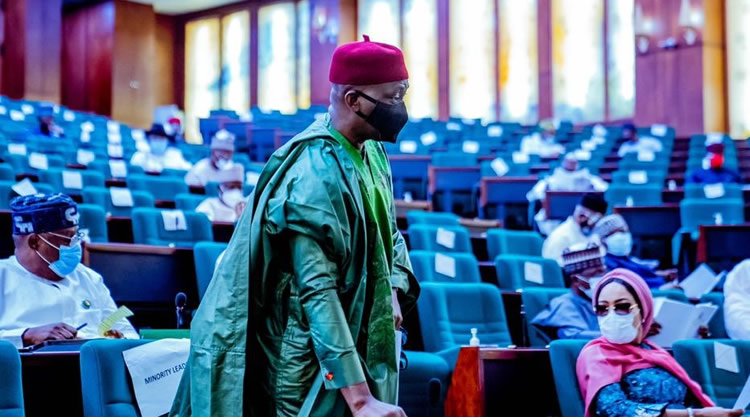
The House of Representatives’ Ad Hoc Committee on the State of Refineries in Nigeria has begun investigation of the current state of the country’s four refineries and the amounts spent on the ‘Turn-Around Maintenance’ of the national assets.
The Chairman of the committee, Ganiyu Johnson, who spoke to select journalists after the inauguration of the panel, disclosed that stakeholders in the petroleum sector in both the public and private sectors would soon begin to appear before the lawmakers.
Johnson also disclosed that the committee would also engage the services of consultants in the sector to verify the information to be made available to the panel.
The House had on Thursday last week adopted two motions to institutionalise an earlier order by the Speaker, Femi Gbajabiamila, for an investigation of the current state of Nigeria’s four refineries and the actual volume of Premium Motor Spirit, popularly called petrol, being consumed by the country daily.
Gbajabiamila had earlier on Wednesday ordered separate probes into the issues, setting up ad hoc committees to carry out the tasks.
Speaking on Thursday, Johnson said, “What we told our members is that by next week, we would come up with the work plan; how we are going to go about addressing the various issues. The major challenge facing our people is that this subsidy is going round and round. And our refineries play a key role in helping to curb subsidies.
“If the refineries are working – not necessarily at their optimal capacity, it means that we don’t need to import our PMS (Premium Motor Spirit, also known as petrol) anymore. So, the challenge we have is to make sure that our refineries are working.
“How to go about it, is the challenge that we have. How much have they expended on the various refineries and how much is it going to cost us to complete (the rehabilitation of) the refineries, so that we would be able to use them.”
He added, “The stakeholders that we will invite include the NNPC, PENGASSAN, the marketers and others. They will be able to contribute to our work plan.”
When told that issues around the refineries had been a subject of probes and controversies, Johnson expressed hope that with the assignment given to the committee, “we will be able to get it done once and for all.”
The lawmaker said, “For example, the Port Harcourt refineries is undergoing rehabilitation and we intend to visit there; not only the two in Port Harcourt; the ones in Warri and Kaduna. By the time we complete our inspection visitations, we would be able to tell Nigerians that they should be rest assured that the issue of subsidy is a thing of the past.
“We are representing the people and we must make sure that we also do justice to whatever we are doing.”
Earlier in his opening address to the committee at the inaugural meeting, a copy of which our correspondent obtained, Johnson had noted that the panel was commissioned to “determine the true state of the refineries in the country; ascertain the actual cost of rehabilitating the Nigerian refineries; assess the non-functionality and deplorable state of the nation’s refineries.”
Meanwhile, the ad hoc committee set up by the House to determine the total inventory, assets, liabilities and interests of the Nigerian National Petroleum Corporation before its full privatisation has begun its investigation.
The Chairman of the committee, Uju Kingsley, said the lawmakers would interface with the Minister of Finance, Budget and National Planning, Zainab Ahmed; Minister of State for Petroleum Resources, Timipre Sylva; Governor of the Central Bank of Nigeria, Godwin Emefiele; and the Chief Executive Officer, NNPC Limited, Melee Kyari, to extract the necessary information.
The House had on December 1, 2021, called for an audit of the assets and liabilities of the NNPC before it is fully privatised.
Consequently, the House resolved to set up a panel to carry out the exercise within eight weeks, based on a motion that was unanimously adopted by the lawmakers, titled, ‘Need to Ascertain the Total Consolidated Inventory, Assets, Interests and Liabilities of the NNPC and its Subsidiaries Before Transfer to the NNPC Limited to Ensure a Glossary Accounting System.’
Following the enactment of the Petroleum Industry Act, the NNPC and its subsidiaries have been unbundled with the creation of the NNPC Company Limited, the Nigerian Upstream Regulatory Commission, and the Nigerian Midstream and the Downstream Petroleum Regulatory Authority.
All rights reserved. This material, and other digital content on this website, may not be reproduced, published, broadcast, rewritten or redistributed in whole or in part without prior express written permission from PUNCH.
Contact: [email protected]
Copyright PUNCH.
All rights reserved. This material, and other digital content on this website, may not be reproduced, published, broadcast, rewritten or redistributed in whole or in part without prior express written permission from PUNCH.
Contact: [email protected]





